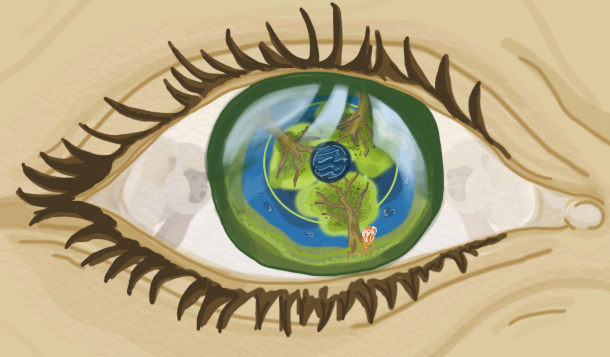For many, being forced to stay inside during the pandemic and remain within their local area for longer than ever before has led to a so-called ‘eco wake-up-call’ – they are inclined to alter their lifestyles to be more environmentally conscious. They have undergone a sort of awakening, and I’m much the same.
During the first lockdown in spring 2020, I was able to see leaves on the trees and flowers everywhere during my daily walks. I would work outside in the sunshine with the surrounding birdsong, and it opened my eyes to how much I appreciate the natural world and how devastating it would be if it were ruined forever because of human selfishness.
On top of this, the lack of news coverage about climate change as a result of the pandemic has only spurred me on to believe that more needs to be done. Whilst coronavirus and its effects are devastating and should definitely be the government’s and the country’s priority right now, the climate crisis should come in at a close second. We don’t have long to rectify the decades of devastation our actions have had on the planet, and people just don’t seem to get it.
It was because of these factors that, in the autumn, I decided to commit to an (almost) vegetarian diet – something I’d always laughed off as being just a bit too virtuous and tree-hugging for me before. It’s been going great. It’s reduced my spending as well as my fat intake, and so many of the veggie options are actually delicious. Most importantly, I now feel like I’m doing my bit to combat climate change.
Meat production is one of the most damaging industries to the planet, with every kilogram of beef using 15,415 litres of water to produce, and each cow releasing between 70 and 120 kg of toxic methane into the atmosphere every year. Furthermore, it is predicted that if our current meat consumption continues, by 2050, animal agriculture will be responsible for at least two-thirds of the world’s Greenhouse Gas Emissions (GGHs).
While I’m not advocating for everyone to suddenly convert to a plant-based lifestyle and start eating 70% broccoli, cutting down meat consumption or switching to meat substitutes will significantly reduce a person’s ecological impact and carbon footprint. And it’s not as hard as you think it’s going to be. Trust me – I love steak, but I manage not to miss it.
I don’t think I would have decided to change my lifestyle like this without lockdown to push me towards it. Nowadays, I’m conscious of every piece of single-use plastic I use, every mile I drive in a car, and every time I leave the lights on. Although this brings with it a certain amount of uncomfortable guilt, I think it’s improved my outlook on how I live and my relationship with nature (not to sound like a complete hippy). By being so aware of how grateful I am for the natural world while being stuck inside all the time with Miss Rona, I’m more eager than ever to protect it.
During the spring, there was a glimmer of hope as both regional and global travel virtually halted at the height of international fear about the virus, with emissions in each country decreasing by 26% on average at the peak in April. This respite, although very fleeting, saw skies across the world clear of pollutants for the first time in years; it was one of the biggest sources of relief in what was then a climate of utter terror. The hope that the pandemic could mitigate our destruction of the planet helped me through that time, but it was short-lived…
Research conducted at the end of last year revealed that despite the brief lapse in emissions, air quality in 80% of the UK’s cities has since risen to be the same or worse than pre-lockdown levels. Researchers state that despite lockdown restrictions, this rise in pollutants is attributed to increased use of private cars rather than public transport.
This concerns me deeply. Whilst it is understandable that public transport is currently essentially a Petri dish for the virus to spread, it saddens me that we have gone back to harming the environment while the pandemic harms us. The bitter winter weather hasn’t helped – it may not be as easy to appreciate nature when it’s drizzly and freezing, but that doesn’t make it any less valuable and in need of protection.
The words of inspirational climate change activist Greta Thunberg perfectly encapsulate the kind of awakening humanity needs to continuously and collectively push for: ‘Sometimes we just simply have to find a way. The moment we decide to fulfil something, we can do anything. And I’m sure the moment we start behaving as if we were in an emergency, we can avoid climate and ecological catastrophe.’




